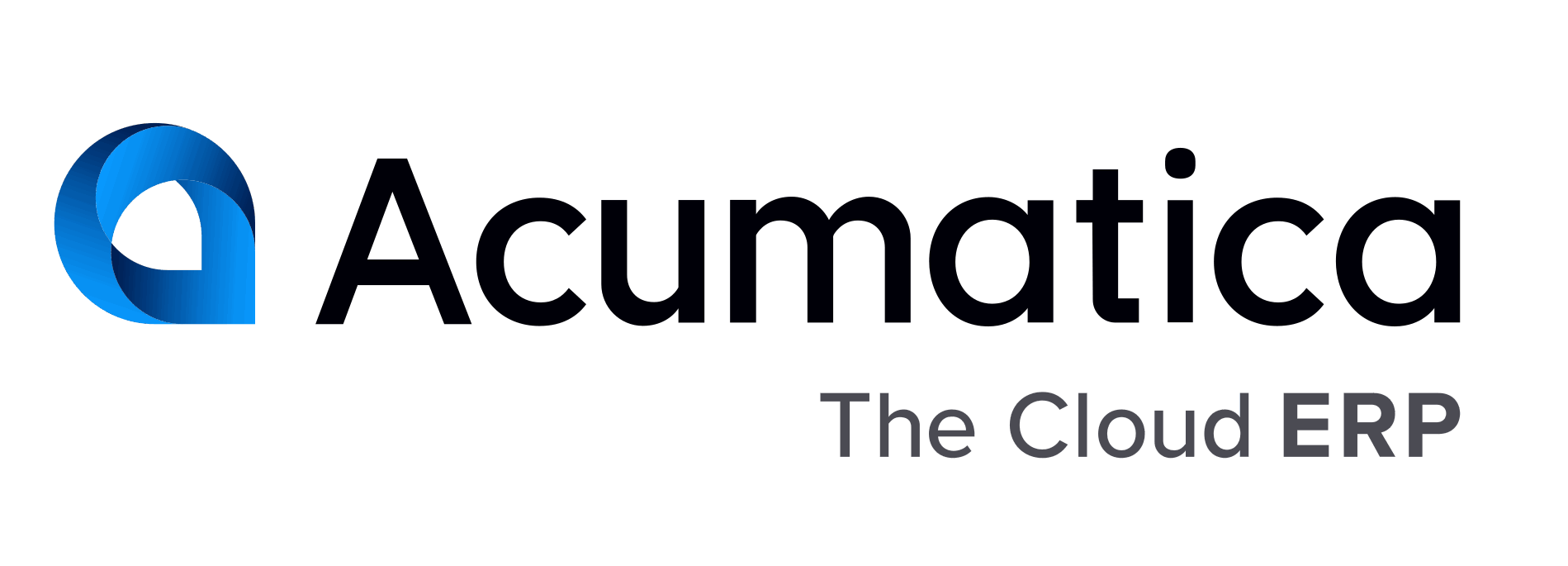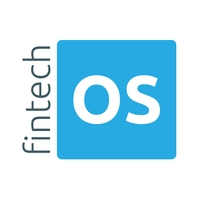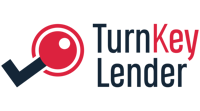Top Finance Softwares
Finance software encompasses a wide range of tools designed to manage financial tasks, streamline operations, and improve decision-making for individuals and organizations. It includes functionalities for budgeting, accounting, investment analysis, and financial reporting. By automating routine tasks, Finance software helps users reduce errors, save time, and increase efficiency. Businesses can ga... Read More
174 companies found
Product Description
Anaplan is a user-friendly software designed to help businesses manage their planning and decision-making processes more efficiently. Its key focus is on making complex planning tasks simpler by bringing together data from different parts of an organization into one easy-to-use platform. Whether it's budgeting, forecasting, or sales and operations planning, Anaplan aims to simplify the process so ... Read More
Users
- • No Data
Industries
- • No Data
Market Segment
- • No Data
Product Description
Kyriba is a cloud-based financial management software tailored to help companies streamline their treasury, payments, risk management, and working capital processes. For businesses looking to simplify complex financial tasks and enhance visibility over their financial operations, Kyriba provides a centralized platform that integrates a variety of functions into one easy-to-use system. Kyriba is d... Read More
Users
- • No Data
Industries
- • No Data
Market Segment
- • No Data
Product Description
Acumatica is a cloud-based enterprise resource planning (ERP) software designed to help businesses manage their day-to-day operations more effectively. Tailored for small to mid-sized companies, Acumatica offers a flexible, scalable platform that can grow alongside your business. From financial management and accounting to customer relationship management and project management, Acumatica integrat... Read More
Users
- • No Data
Industries
- • No Data
Market Segment
- • No Data
patentrenewal.com
Product Description
In today's increasingly competitive market, managing patent portfolios can be a complex and time-consuming task for any business. Patentrenewal.com offers a user-friendly solution tailored to meet the needs of both small enterprises and large corporations. Our software is designed to streamline the entire patent renewal process, ensuring that you never miss a renewal deadline or overpay for mainte... Read More
Users
- • No Data
Industries
- • No Data
Market Segment
- • No Data
Product Description
Lendio is a platform designed to make small business lending efficient and straightforward. Think of it as your go-to matchmaker for business loans. Whether you’re starting out or looking to grow your existing business, Lendio works to connect you with the right lenders and financing options based on your specific needs and qualifications. Using Lendio is simple. Instead of spending countless hou... Read More
Users
- • No Data
Industries
- • No Data
Market Segment
- • No Data
Product Description
Silverfin is a cloud-based software designed to streamline the way financial professionals manage their work and client relationships. It's a platform that helps accountants and finance teams improve their efficiency by automating routine tasks, allowing them to focus more on providing valuable advisory services. Silverfin's main strength lies in its ability to bring all financial data into one c... Read More
Users
- • No Data
Industries
- • No Data
Market Segment
- • No Data
Product Description
FintechOS is designed to help financial institutions quickly and efficiently build and deliver modern, personalized services to their customers. At its core, it allows banks, insurers, and lenders to streamline their digital transformation journeys without the need for extensive technical expertise or resources. What sets FintechOS apart is its flexibility and user-friendly approach. The platform... Read More
Users
- • No Data
Industries
- • No Data
Market Segment
- • No Data
Personal Capital
Product Description
Personal Capital is a user-friendly financial management software designed for individuals looking to take control of their personal finances more effectively. This easy-to-use platform allows you to track all your financial accounts in one place, making it simpler to understand and manage your money. With Personal Capital, you can connect various accounts, such as checking, savings, investments,... Read More
Users
- • No Data
Industries
- • No Data
Market Segment
- • No Data
Product Description
Quicken is a software that aims to make managing your finances easier and more intuitive. It provides users with the tools they need to handle various aspects of personal and home financial management all in one place. Whether you're looking to keep track of your personal budget, monitor your spending, or manage investments, Quicken offers a straightforward solution. With Quicken, you can link y... Read More
Users
- • No Data
Industries
- • No Data
Market Segment
- • No Data
TurnKey Lender
Product Description
TurnKey Lender is a comprehensive software designed to simplify the lending process for businesses. Whether you're a small lender just starting out or a large financial institution, this software helps manage loans more efficiently. It combines several essential features into one platform, making it easier for lenders to handle everything from applications to final repayments. One of the key bene... Read More
Users
- • No Data
Industries
- • No Data
Market Segment
- • No Data
What are the key features to look for in Finance software?
When choosing Finance software, it is essential to consider features that support efficient management of financial tasks. Below are some crucial features that should be present in any Finance software you consider:
1. Comprehensive Reporting and Analytics
Finance software should offer robust reporting and analytics tools. These tools help users gain insights into financial data through detailed reports. Look for customizable dashboards and the ability to generate reports on various financial metrics. This feature enables better decision-making based on data-driven insights.
2. Integration Capabilities
Integration capabilities are vital for Finance software to work seamlessly with other tools and applications used within your organization. Ensure that the software you choose allows integration with existing systems like CRM, ERP, and other essential business applications. This feature minimizes data silos and enhances synchronization across platforms.
3. Automated Accounting Processes
The automation of accounting processes is a critical feature in Finance software. It should automate routine tasks such as invoicing, expense tracking, payroll, and tax calculations. Automation reduces manual errors and saves time, allowing financial teams to focus on more strategic activities.
4. Budgeting and Forecasting Tools
Finance software must have integrated budgeting and forecasting capabilities. These tools help in planning and predicting financial outcomes by analyzing historical data and current trends. Look for features that allow multi-scenario analysis to prepare for different financial situations.
5. Security and Compliance
Given the sensitive nature of financial data, security is paramount. Finance software should offer strong security measures like data encryption, user authentication, and regular security audits. Additionally, it should comply with industry standards and regulations to ensure that your financial data is protected.
6. User-Friendly Interface
A user-friendly interface is crucial for ensuring the software is accessible and intuitive even for non-expert users. The Finance software should provide easy navigation, clear instructions, and support features to enhance the overall user experience.
7. Multi-Currency and Multi-Language Support
For businesses operating in multiple countries, multi-currency and multi-language support in Finance software is essential. This feature aids in dealing with international clients and suppliers, ensuring that financial transactions are accurate and comply with varying regulations.
8. Tax Management
Comprehensive tax management features are necessary within Finance software. This includes tools for calculating taxes, filing returns, and managing tax-related documentation. Such functionality can ease the burden of tax reporting and ensure compliance with tax laws.
9. Mobile Accessibility
In today’s fast-paced environment, having mobile access to Finance software allows users to manage financial operations on-the-go. Ensure that the software includes a mobile application or a responsive web interface to facilitate access from various devices.
10. Scalability
Finally, consider the scalability of the Finance software. It should be able to grow with your business, accommodating more users, increased data volume, and additional modules as your financial management needs expand.
By evaluating Finance software based on these features, you can choose a solution that best fits your organization's financial management requirements.
How does Finance software help in budgeting and forecasting?
Finance software plays a crucial role in the budgeting and forecasting processes for businesses of all sizes. By leveraging powerful tools, companies can efficiently manage their financial operations, improve decision-making, and align financial goals with strategic objectives.
Streamlined Budget Creation
Finance software simplifies the creation of budgets by providing standardized templates and user-friendly interfaces. This allows organizations to quickly input financial data, create multiple budget versions, and track changes over time. With Finance software, businesses can:
- Maintain Consistency: Utilizing preset templates ensures that every department follows the same format, leading to consistency across the organization.
- Centralize Data: Integrated data sources allow for access to a central repository, eliminating the need for manual data entry and reducing errors.
- Incorporate Historical Data: Historical financial data is readily available, allowing teams to compare previous periods to forecast future budgets.
Real-Time Financial Analysis
Real-time capabilities of Finance software enable businesses to analyze financial conditions and react promptly to changes. Continuous monitoring allows teams to:
- Detect Trends: Automated processes identify emerging trends and potential financial challenges.
- Adjust Proactively: Immediate visibility into budget items enables timely adjustments to forecasts and budgets when unexpected situations arise.
- Improve Accuracy: Real-time data analytics provide more accurate forecasts, helping in better allocation of resources.
Scenario Planning and Forecasting
Finance software enhances the forecasting process by enabling scenario planning, which benefits decision-making in uncertain environments. Businesses can model various financial scenarios to:
- Prepare for Uncertainty: By analyzing different scenarios, organizations can anticipate potential financial risks and opportunities.
- Optimize Resources: Scenario planning helps allocate resources efficiently, ensuring that financial forecasts align with business objectives.
- Enhance Strategic Planning: Robust forecasting tools support strategic planning by providing insights into the financial impacts of different business decisions.
Collaborative Budgeting and Forecasting
Finance software facilitates collaboration among different departments, creating a transparent environment conducive to effective budgeting and forecasting. Features promoting collaboration include:
- Shared Access: Multiple teams can work on budgets simultaneously, facilitating feedback and ensuring alignment with the overall financial plan.
- Integrated Communication: Built-in communication tools aid in the clear exchange of ideas and expectations among stakeholders.
- Responsibility and Accountability: Assigning task-specific roles enhances accountability, leading to more efficient budget and forecast management.
Data Visualization
Effective Finance software often includes data visualization tools, turning complex data sets into comprehensible visuals. Data visualization aids in:
- Simplifying Complex Information: Visual tools simplify complex financial data, making it easy for stakeholders to grasp insights.
- Corporate Governance: Clear visual reports support governance by making budgeting and forecasting more transparent.
- Performance Tracking: Graphs and charts help track performance against set goals, allowing timely interventions if needed.
Finance software provides a structured approach to budgeting and forecasting by streamlining processes, enhancing collaboration, and offering insights through real-time analysis and visualization. The integrated capabilities support businesses in developing more accurate and strategic financial plans, thus contributing to overall financial stability and growth.
What are the benefits of using cloud-based Finance software?
Enhanced Accessibility
Cloud-based Finance software provides unparalleled accessibility. Users can access financial data and perform tasks anywhere with internet access. This breaks the geographical limitations of traditional software, enabling users to manage finances on the go. The software's mobility ensures that financial professionals and business stakeholders are not tied to a singular location, ensuring that decision-making and information sharing occur in real-time, from various devices.
Cost-Effectiveness
One of the primary advantages of cloud-based Finance software is its cost-effectiveness. Traditional finance systems often involve significant initial investments in hardware and software licenses. In contrast, cloud-based solutions typically operate on a subscription basis, reducing upfront costs. This model also minimizes maintenance costs, as the cloud service provider handles updates and system support. By converting large capital expenditures into smaller, manageable operational expenditures, businesses can allocate resources more strategically.
Scalability
Cloud-based Finance software is designed to be scalable, ensuring that as a business grows, the software can grow with it. Whether it's expanding to new markets, increasing transaction volumes, or integrating more users, cloud solutions streamline the scaling process without the need for new hardware or complex installations. Businesses can upgrade their service plans or add functionalities with ease as they grow, ensuring the software accommodates evolving financial needs.
Real-Time Data Processing
Real-time data processing is another critical benefit of cloud-based Finance software. The system constantly updates financial information and generates reports on the fly. This ensures that businesses always have the most current data, enhancing decision-making effectiveness. Real-time insights lead to more accurate forecasting, budgeting, and strategic planning as users have access to up-to-date financial metrics and analyses.
Enhanced Security
Security is paramount in handling financial data. Cloud-based Finance software providers invest heavily in safeguarding data through multiple layers of security, including encryption and regular security assessments. Many providers comply with international standards and regulations, ensuring high data protection levels. Additionally, cloud solutions offer reliable data backup and disaster recovery options, minimizing data loss risks due to unforeseen events.
Collaboration and Integration
Collaboration is made easier and more efficient with cloud-based Finance software. Multiple team members can work on the same projects, share insights, and update information seamlessly. The collaborative feature facilitates teamwork and reduces delays in financial management processes. Furthermore, cloud solutions often integrate with other business applications, such as CRM and HR tools, fostering seamless data flow and improving overall business efficiency.
Regulatory Compliance
Compliance with financial regulations is vital for any business. Cloud-based Finance software often includes features that aid in monitoring compliance requirements, helping businesses adhere to various financial laws and regulations. Regular software updates ensure that the latest regulatory changes are reflected in the software, reducing the risk of non-compliance penalties.
Environmental Impact
Finally, cloud-based solutions contribute to reducing environmental impact. By leveraging centralized data centers, the need for extensive on-premises hardware is reduced, leading to decreased energy consumption and a smaller carbon footprint. This makes cloud-based Finance software an environmentally friendly choice for businesses aiming to incorporate sustainability into their financial operations.
How can Finance software improve financial reporting accuracy?
Data Consolidation
Finance software aids in consolidating data from various sources, ensuring a single source of truth. By automatically integrating information from accounts, invoices, and bank statements, it reduces the errors associated with manual data entry. This level of integration not only speeds up the reporting process but also significantly enhances accuracy. Instead of relying on disparate systems, companies can rely on a unified platform, minimizing discrepancies.
Real-time Data Access
Access to real-time data is crucial for accurate financial reporting. With Finance software, organizations can monitor financial metrics continuously, allowing for timely updates and adjustments. This real-time visibility into financial data ensures that reports are current, reducing the likelihood of errors due to outdated information. This continuous monitoring allows for immediate correction of any discrepancies, thereby keeping records consistently accurate.
Automation of Calculations
Manual calculations are a common source of errors in financial reporting. Finance software automates complex calculations, ensuring precision and reducing human error. Automated processes within Finance software handle everything from currency conversions to statistical analyses, ensuring that computations are consistent and correct. This automation allows finance teams to focus on analysis and strategy rather than mundane number crunching.
Standardization of Processes
Finance software enforces standardization in financial processes, which is crucial for accuracy. By standardizing reporting templates and workflows, it ensures consistency across all reports. Standardization eliminates the variability caused by using different formats or methodologies, which can lead to inconsistent results. Organizations can rely on these standardized processes to produce accurate and comparable reports over time.
Error Reduction and Detection
The ability of Finance software to detect anomalies or inconsistencies enhances reporting accuracy. Built-in validation features alert users to potential issues, allowing for quick resolution. By evaluating data against predefined validation rules, Finance software can catch errors before reports are finalized. This proactive approach to error management supports the production of reliable financial statements.
Compliance and Regulation Alignment
Compliance with financial regulations is critical for many businesses. Finance software helps ensure that financial reports meet industry standards and legal requirements, reducing errors related to regulatory non-compliance. By regularly updating to reflect the latest regulatory changes, Finance software aids businesses in maintaining accurate and compliant records. This alignment with compliance requirements avoids pitfalls that result from misunderstanding or misapplying regulations.
Historical Data Analysis
Access to historical financial data enables businesses to identify trends and anomalies. Finance software provides comprehensive tools for analyzing past performance, helping organizations to refine their reporting processes. By assessing historical data, businesses can adjust current practices to enhance accuracy moving forward. This historical perspective is crucial for understanding long-term financial performance and improving current financial reporting methods.
Enhanced Communication and Collaboration
Finance software facilitates better communication and collaboration among team members, which is vital for accurate reporting. With shared access to the same data, teams can easily verify and cross-check information. This collaborative environment ensures that discrepancies are quickly identified and addressed, leading to increased report accuracy. Enhanced collaboration supports the development of accurate and validated financial information by involving multiple stakeholders in the process.
What types of businesses can benefit most from Finance software?
Small and Medium Enterprises (SMEs)
Small and medium enterprises (SMEs) can greatly benefit from Finance software. These businesses often operate with limited staff and resources, making it challenging to manage complex financial processes. Finance software simplifies these tasks by automating accounting, budgeting, and financial reporting. This allows SMEs to focus on core business activities while ensuring accurate financial management. The ease of use and scalability of these solutions make them particularly well-suited for growing businesses looking to streamline operations.
Startups
Startups often face unique financial challenges, especially in their early stages. Managing finances effectively while conserving limited resources is critical for their success. Finance software can help startups track expenses, forecast cash flow, and manage budgets without the need for extensive financial expertise. By providing real-time visibility into financial data, these tools assist startups in making informed decisions that support growth and sustainability.
Large Corporations
Large corporations benefit from Finance software due to their complex financial operations and the need for comprehensive reporting and compliance. These businesses handle vast amounts of financial data, requiring robust solutions to manage accounts payable, accounts receivable, payroll, and taxation. Finance software helps streamline these processes, reducing errors and improving efficiency. It also aids in maintaining compliance with industry regulations by automating reporting and providing audit trails.
Non-profit Organizations
Non-profit organizations have distinct financial needs, focusing on transparency and accountability to donors and stakeholders. Finance software assists non-profits in managing donations, grants, and program expenses. It offers clear and detailed financial reports that demonstrate how funds are being utilized. This ensures that non-profits can maintain transparency and strengthen trust with their supporters.
Retail Businesses
Retail businesses deal with high transaction volumes and inventory management complexities. For these businesses, Finance software offers solutions that integrate with point-of-sale systems, inventory management, and customer relationship management. This integration aids in real-time financial tracking and improves the accuracy of purchasing and budgeting decisions, ensuring that retail operations remain profitable and efficient.
Manufacturing Firms
Manufacturing firms face complex cost structures related to production processes, raw materials, and labor. Finance software enables these firms to manage cost accounting and budgeting more effectively. By providing insights into production costs and efficiency metrics, finance software helps manufacturing firms optimize operations and enhance profitability.
Financial Services
Financial services sector, including banks, investment firms, and insurance companies, operates under strict regulatory environments and requires precision in financial management. Finance software aids in ensuring compliance by automating transaction processing, risk management, and regulatory reporting. The analytical capabilities of these tools also support strategic decision-making and enhance customer service offerings.
By providing automation, accuracy, and insights, finance software can support a range of industries. Whether a business is small or large, finance software can address financial challenges, improve decision-making, and contribute to growth and success.
How does Finance software integrate with other business tools?
Finance software plays a crucial role in the financial health of a business by managing transactions, budgeting, forecasting, reporting, and compliance. Integrating Finance software with other business tools can streamline processes and improve data accuracy across an organization. Here's how this integration typically works.
1. Enterprise Resource Planning (ERP) Systems
ERP systems often encompass a wide range of business processes. Finance software integrates with ERP systems to ensure seamless data flow. This integration allows financial data from various departments, such as human resources, supply chain, and customer relationship management, to be centralized. As a result, it helps in maintaining accuracy in financial reporting and analysis.
2. Customer Relationship Management (CRM) Tools
Finance software integration with CRM systems enables businesses to link sales data with financial records. This linkage is valuable for tracking customer invoices and payments, providing a comprehensive view of customer relationships and financial interactions. It assists in credit management and forecasting income based on sales trends.
3. Human Resource Management (HRM) Systems
Integrating HRM with Finance software is essential for payroll processing. This integration ensures that payroll expenses are recorded accurately in financial statements. It also allows for better management of employee costs and benefits, leading to improved budgeting and financial planning.
4. E-commerce Platforms
For businesses engaged in online sales, integrating Finance software with e-commerce platforms is vital. This connectivity ensures that sales transactions are automatically recorded in the financial system, reducing manual entry errors. Inventory management is also streamlined, as the Finance software gets real-time updates on stock levels and sales.
5. Banking and Payment Gateways
Finance software often connects with bank accounts and payment gateways to facilitate timely and accurate transactions. This integration provides real-time data regarding cash flow, enabling businesses to reconcile bank statements quickly. It also enhances security and efficiency in managing financial transactions.
6. Project Management Tools
Finance software can be integrated with project management applications to enhance project tracking and cost management. This setup allows project managers to monitor budgets, track expenses, and ensure that financial resources are allocated appropriately. It aids in accurate project forecasting and prevents budget overruns.
7. Business Intelligence (BI) Systems
Integration with BI tools allows Finance software to contribute to analytical processes that provide insights into financial performance. Through this integration, businesses can generate detailed financial reports and dashboards that facilitate better decision-making and strategic planning.
8. Document Management Solutions
Document management systems can be integrated with Finance software to manage financial documents like invoices, contracts, and receipts. This integration provides a centralized and organized way to store, retrieve, and manage financial paperwork, enhancing compliance and audit readiness.
Finance software integration with other business tools is essential for maintaining a comprehensive and cohesive business operation. It ensures that financial information is accurate, up-to-date, and easily accessible across various processes. This integration reduces redundancy, increases efficiency, and supports the overall strategic goals of a business by providing a unified view of financial activities.
What security measures should you consider when choosing Finance software?
Data Encryption
When evaluating Finance software, prioritize data encryption. Data encryption transforms information into a secure format, ensuring only authorized users can access it. Both data at rest and data in transit should be encrypted to protect sensitive financial data from unauthorized access.
User Authentication
Advanced user authentication is another critical security measure. Look for Finance software that supports multi-factor authentication (MFA). MFA requires multiple forms of verification, adding an extra layer of security besides just a password. This helps prevent unauthorized access by requiring something the user knows (password) and something the user has (a code sent to a device).
Access Controls
Access control is vital in secure Finance software. Configure software to limit access based on roles and responsibilities, ensuring users only have access to what they need. Role-based access control (RBAC) aids in segmenting data access, reducing the risk of misuse. Regularly review access rights and update them as roles change.
Audit Logs
Audit logs offer a detailed trail of all activities within the Finance software. These logs help identify unusual or unauthorized actions. This measure aids in ensuring accountability and transparency while allowing you to respond to data breaches swiftly. Ensure the software provides comprehensive audit logs and regularly review them for irregularities.
Regular Software Updates
Ensure the selected Finance software provides regular updates and patches. Software updates fix vulnerabilities and improve security. Without regular updates, systems may become vulnerable to new threats. Choose software vendors committed to ongoing support and maintenance, reducing risks from potential security breaches.
Data Backup and Recovery
Finance software should include robust data backup and recovery options. Regular data backups protect against data loss due to system failures or breaches. Ensure the software allows for automated backups and provides an efficient recovery process, minimizing downtime and preserving financial data integrity.
Compliance with Regulations
Ensure the Finance software adheres to relevant regulations and standards. Adherence to standards like GDPR, PCI-DSS, or SOC ensures the software meets necessary security criteria and practices. Using compliant software protects against legal penalties and ensures safe handling of financial data.
Vendor Security Practices
Investigate the vendor's security practices. Choose a vendor with a strong security track record. Verify their security certifications and inquire about their data protection measures. Check for independent security audits that confirm their commitment to safeguarding user data.
Incident Response Plan
A well-defined incident response plan within the Finance software is essential. This plan outlines steps taken in case of data breaches or security incidents. Ensure the software provides clear procedures and support for handling security incidents, minimizing impact and promoting quick recovery.
Overall, prioritizing these security measures helps ensure the Finance software you choose adequately protects sensitive financial information.









